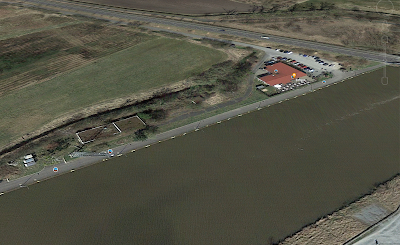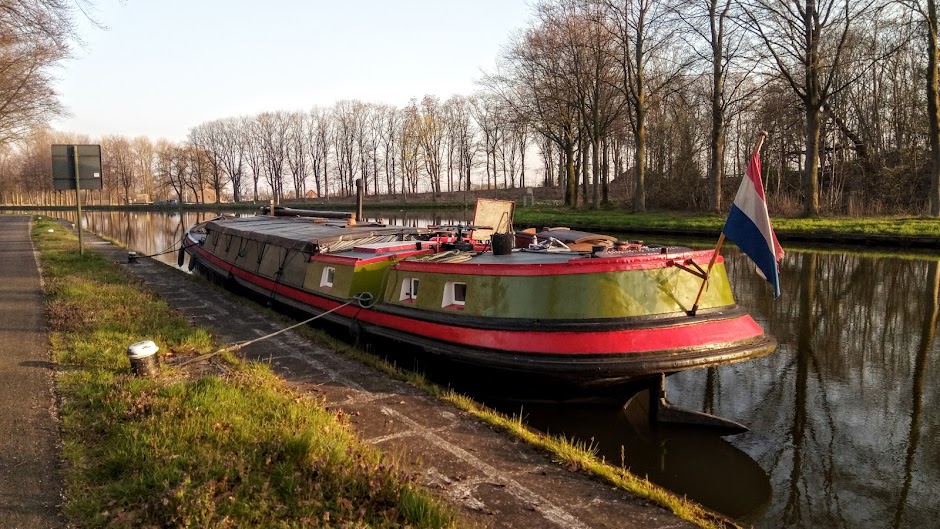The last few days have been fascinating. I've been doing some research for my work-in-progress, which is a sequel to The Skipper's Child, the novel I wrote about twelve years ago. My young hero, Arie, is now 16 and has joined his father, Hendrik, as the co-skipper of their barge, Rival.
The new adventure takes them to Germany and to the East German border, so I've been trying to find out how things were at that time, and Koos, with his skills in reading German, has been helping me. I have to admit I might have to change my plot a little given what I've now found out, but this website has provided a heap of information for me on what happened at the iron curtain border. It was pretty difficult for anyone to get through it, not least Germans, but as often happens, I've got hooked on the research itself. What Arie and the Kornets will do, I now have no idea, and my story has yet to sort itself out! But it's giving me loads of new ideas.
If you look at the site, you'll see that on the GDR side, there were look-out posts on the bridges (crows' nests) and a barrier that slid across the canal when transit stopped for the day. The translation for the site is pretty decent, so let Google do it for you if you don't speak German, like me (I've had Koos to help me). Seeing the old photos gave me quite a chilling feeling, so it was a bit of light relief when we started looking for the customs post on the West German side.
Apparently, so the site says, German skippers could leave personal possessions there before entering the east if they were prohibited items. They could then pick them up again on the way out. A nice, human touch, I think. Anyway, in 1966, the year of my story, the West German checkpoint was the white building shown below, some 2.6 kilometres from the border. Today, it is a Greek restaurant, somewhat extended and with good mooring space in front of it. The sepia photo is quite evocative, isn't it? The screenshot from Google maps beneath it with its colour changes the whole feeling the place conveys.
| A photo from 1966 showing that what is now a Greek restaurant used to be the West German checkpoint
|
| The old West German customs house 2.7 kms from the East German border. This photo has no date, sadly, but I'm guessing it's from the 1980s |
 |
| This was the view from the southern bank in 2018. The customs house is just visible behind the trees |
 |
| The satellite image from August 2018, showing just the outline of the old customs house. |
So you can see we've been a bit side-tracked. The original checkpoint building will be the only one relevant to my 1966 story, but it's been an entertaining diversion to find out where the later one stood and when it disappeared. We're now talking about making making a road trip to go and see the border crossing. This is why I love research; it takes me to new and undiscovered places. And maybe, just maybe, I'll find the key to unlock my plot there.


Such excitement. This is going to make for a great read, I just know it!
ReplyDeleteThank you, Shirley. I really hope so :)
DeleteVal, I am so excited about your work in progress. I loved The Skipper's Child and still find myself thinking about it. You are right about research. I love getting lost in research - which is easy - because I can get lost anywhere, especially in research! (Steph)
ReplyDeleteHahaha, Steph. At least getting lost in research doesn’t take you off in the wrong direction, just a different and more interesting one :) Thank you for the kind comment!
DeleteWhat a fascinating blog, Val. I get hopelessly sidetracked with research too, and this would have had me utterly absorbed. The best of luck with your continued digging, I can't wait to read your novel when it all comes together. :) xx
ReplyDeleteBeth, it’s hopelessly absorbing. I sometimes think I enjoy the research more than the writing. Thank you so very much for your encouragement. I need all I can get :)
DeleteI enjoyed doing the research for my recent Louth canal project but what you've been doing is way beyond that. I was fascinated to read that you may now have to change your main characters story. It will be interesting to find how things change, I always assumed the author was in control of the plot but I now see that even a fictional piece of work has to be historically correct to be believable. Interesting post Val, take care.
ReplyDeleteMany thanks, David. Yes, fiction gives you a few more liberties, but it has to be credible, so I cannot ignore the historical facts. I enjoyed your Louth canal project very much, and I can imagine the research must have been fascinating!
DeleteHow fascinating Val, I confess to enjoying looking up historical information too. I really enjoyed The Skipper's Child so it's good to hear you are writing another book featuring Arie. How difficult life must have been when Germany was divided. Very hard for barge owners to cross the border. It must have made them very anxious.
ReplyDeleteAw, thank you, Rebecca. Yes, Arie is returning due to pressure from Chris Moore, among others :) I love the research, though, and I notice you always do yours when you post about visits to historical places of note. The Cold War was a huge challenge for the barge owners. Only Germans could cross into East Germany, though, and the checks at the border were very thorough. Seeing the security measures, I'm not quite sure how I'm going to get my characters through! It'll be fun to work out the story now.
DeleteThat's going to be a real challenge for you Val. Not an easy puzzle to solve! Of course I had no idea that barges would not be allowed to cross into the East unless they were German. Good luck with that - and with the research. (PS Trust Chris!)
Delete